TwitterChat: Being responsible in times of Covid-19, ad honchos show the way
Amid misinformation and scores of fake news floating around on social media in times of the Coronavirus, it has become imperative that media, agencies and corporates join in the fight against spreading panic in uncertain times.
Along with responsible behaviour, responsible communication has also become a weapon in this fight. Keeping this in mind, Adgully’s latest Twitter Chat chapter delved into ‘Responsible Communication During Covid-19’. The Twitter Chat was held on March 20, 2020.
Over the past few months, Adgully’s Twitter Chat initiative has caught the industry’s attention, with several top notch names taking part in these chats. The latest Twitter Chat topic was the brainchild of industry veteran Llyod Mathias, who suggested the topic to Adgully.
Joining the conversation were:
- Lloyd Mathias, Business Strategist (@LloydMathias)
- Naresh Gupta, Managing Partner & Chief Strategy Officer, Bang In The Middle (@googlegupta)
- Chetan Asher, Co-founder & CEO, Tonic Worldwide (@chetanasher)
- Ashok Lalla, Digital Business Advisor (@ashoklalla)
- Nikhil Dey, Vice Chairman, Weber Shandwick India (@deydreaming)
- Shubho Sengupta, Digital Marketer (@shubhos)
Moderating this chapter of the Twitter Chat was Chetan Asher, who commenced the discussion by remarking on the changes in the communication strategy of brands in challenging times like these. “What kind of communication would reflect being socially responsible?” Asher asked the other participants.
Naresh Gupta began the round of answers by saying, "Its a tough time, and time like this needs a compassionate tone of voice. The communication needs to be more informative and less preachy."
Ashok Lalla further adds to this and says, "Responsible communication is that which is based on facts, authentic, bias and opinion-free, does not feed or fan rumours and ideally with a face attached to it."
Lloyd Mathias highlights the importance of communicating effectively and marks the key ingredients as "Talking about steps taken by your organisation, what the brand is doing to keep customers and employees safe. Also anything the company is doing in the larger public interest."
Nikhil Dey ended the round of and answers and summed up by saying, "Focus on feelings. What do your stakeholders want to know or hear from you. Not what you want to tell them. Think from their point of view and then craft your communication."
Talking about communication done by brands, there are several global campaigns that come to mind that can be a great example of great communication done effectively. However, in India we still have some campaigns spreading fake news and also leveraging their products for profits. Asher asked the panelist to point some examples of good communication done by brands in India or globally.
Naresh Gupta began the round of answers and said that he hasn't come across any stand out work.
However Ashok Lalla pointed work done by brands like Ola, Swiggy and GoAir as examples of responsible communication done in India. He says, "In India, several service brands have put out responsible communication around steps they are taking for customer/ employee safety. Ola and Swiggy are a couple. GoAir and Vistara among airlines. Others I guess have adopted a wait-and-watch attitude."
Nikhil Dey gave an example of brand communication done during these times. He tweeted, "Cooped up in the house with nothing to do? Let us help out. We're giving everyone Free access to both our Tinkle and Amar Chitra Katha comic apps for an entire month! Get a FREE one month subscription to our entire catalogue till March 31st, 2020!
In times of crisis, especially the COVID-19 scenario, brands have to play a role of responsibility towards consumers and society. Here capitalising by leveraging their products isn't the route brands should take. Asher asked the panelists about Responsibility vs Profitability for brands.
Ashok Lalla said, "This is not a time for doing business as usual. So all businesses must demonstrate and communicate their sensitivity to the situation and act responsibly keeping associates and customers first, followed by the business itself. I think moment marketing to act cute, clever or be opportunistic in the time of a crisis such as coronavirus is a terrible thing and most irresponsible. This is a time to help and collaborate, not exploit."
Nikhil Dey agreed to this and added,"Definitely not business as usual. There is an info overload & misinformation. Speak when you hv something to say. Don’t feel pressured to communicate just because everyone else is. Adding to the clutter won’t help. Staying connected, checking in, active listening are equally important.
It is easy to go wrong in the early stages of an issue like this, if you try and sell. Intent matters. If your brand can be of service and help and does so in a genuine way, it will be welcomed. Anything less will be seen as opportunistic"
Talking about Moment Marketing done during these times, Naresh Gupta added, "Personally I fell when the brands did content as moment marketing, they didn't realise that the issue will be as massive as it has become now."
While profits should not be the intent of brands, communication is still key. Asher asked the panelists, "How can brands engage audiences without being too preachy?"
Talking about brands in the current scenario Ashok Lalla said "On another note, this social distancing and sudden work from home has put clients and agencies into unfamiliar territory. So hopefully, there will be less impulsive stuff, and better thought through ideas once they grapple with their new working norms."
Naresh Gupta further added, "This is something that one has done ever, but I do suspect we are about to watch a lot of 'social experiments'"
Nikhil Dey summed it up by saying, "Denial, fear, anger are natural emotions in time’s like these. Recognise that. Help others get through these phases fast. Only when we are in ‘acceptance mode’ will we be able to move forward effectively. Individually and collectively."
The conversation then went onto the role of social media platforms. Platforms like Twitter, Facebook and WhatsApp do have a role of controlling fake news and making sure people get the right information regarding the crisis. Asher asked the panelists about the role of social media platforms.
Naresh Gupta pointed out that, "The platforms have a big task to weedout all the misinformation that is being posted. The platforms have to aggressive in marking the content as fake or misleading."
Ashok Lalla further added, "The answer is YES, they can and must do more. Sadly, platforms are not doing enough to prevent and weed out misinformation and rumours from spreading via their platforms. This is a great time for them to rise above the humdrum and make a difference."
Lloyd Mathias agreed to this and said, "They have to do a lot more. For one sites like WhatsApp, Facebook and Twitter needs to carefully filter out all fake news with regard to."
Nikhil Dey summed it up by saying, "Fact checking is the biggest role for platforms - to slow down fake news. Our role - Remember to act only on verified information. Rumours and fears fly fast and furious in time’s like these. A communicator role is crucial in times like these."
Obviously, the government plays a crucial role in times like these. As the final question, Asher asked the panelists about the current role played by the government and the communication done.
Ashok Lalla said, "I think there's too much floating around." He further pointed and suggestions for the government and said,
"1. Have named, designated spokespersons
- Regular updates e.g. 7 pm every day
- Focus on facts and progress
- Demonstrate actions taken, reassure people
- Less cute alliterations, more concrete stuff"
Lloyd Mathias further pointed out saying, "Yet to see a fully coordinated effort. The Government only recently put out a comprehensive dashboard. This should have happened much earlier. Also many state governments who play a bigger role seem totally unresponsive."
Naresh Gupta on the other hand said, "Government as come a long way these days in communicating, the caller ringback tone innovation is super clever. They are doing a lot. I would want the government to make this subject open to all, let the agencies submit ads, let the government choose and run what they think is best."
Giving his closing thoughts, Nikhil Dey said, "Own the problem. Don’t externalise. Don’t try and allocate blame. It won’t help. It’s in our hands as well. Literally - remember to wash them regularly. Be the safe hands that your team and stakeholders need at a time like this.
Also Read:
#COVID19: Brand communications supporting #JantaCurfew
MY FM's RJs will entertain listeners from home during Janta Curfew



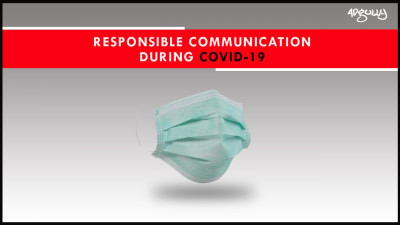
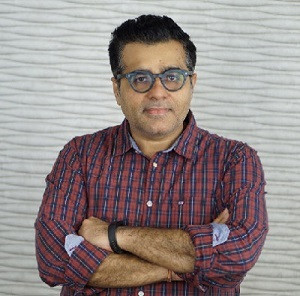
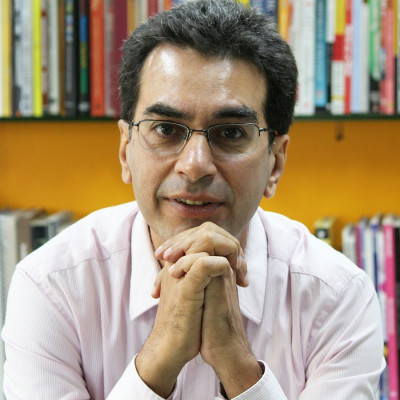
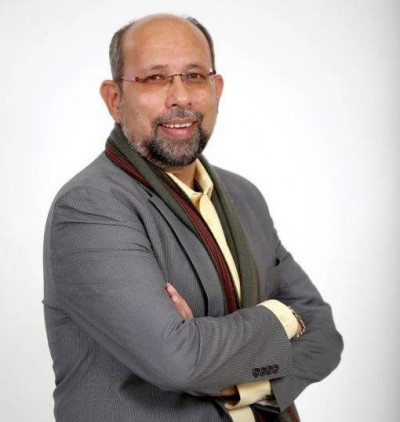
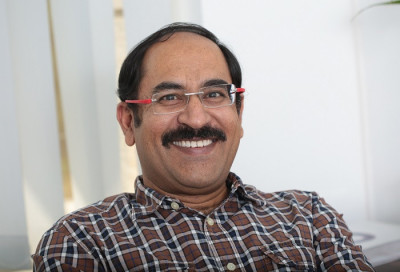
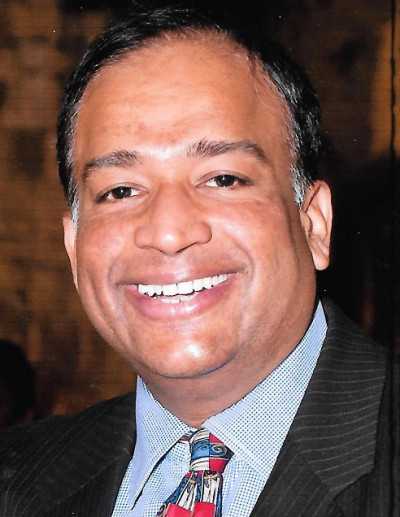
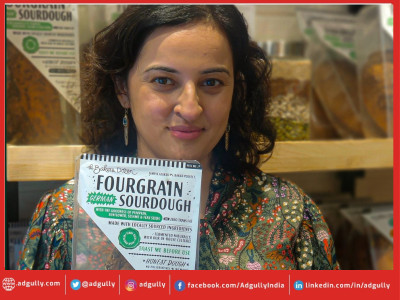






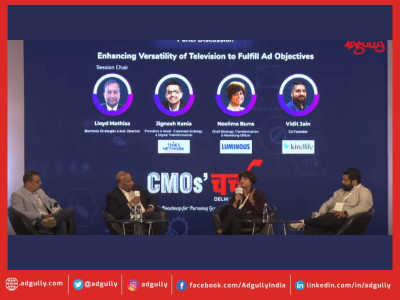






Share
Facebook
YouTube
Tweet
Twitter
LinkedIn